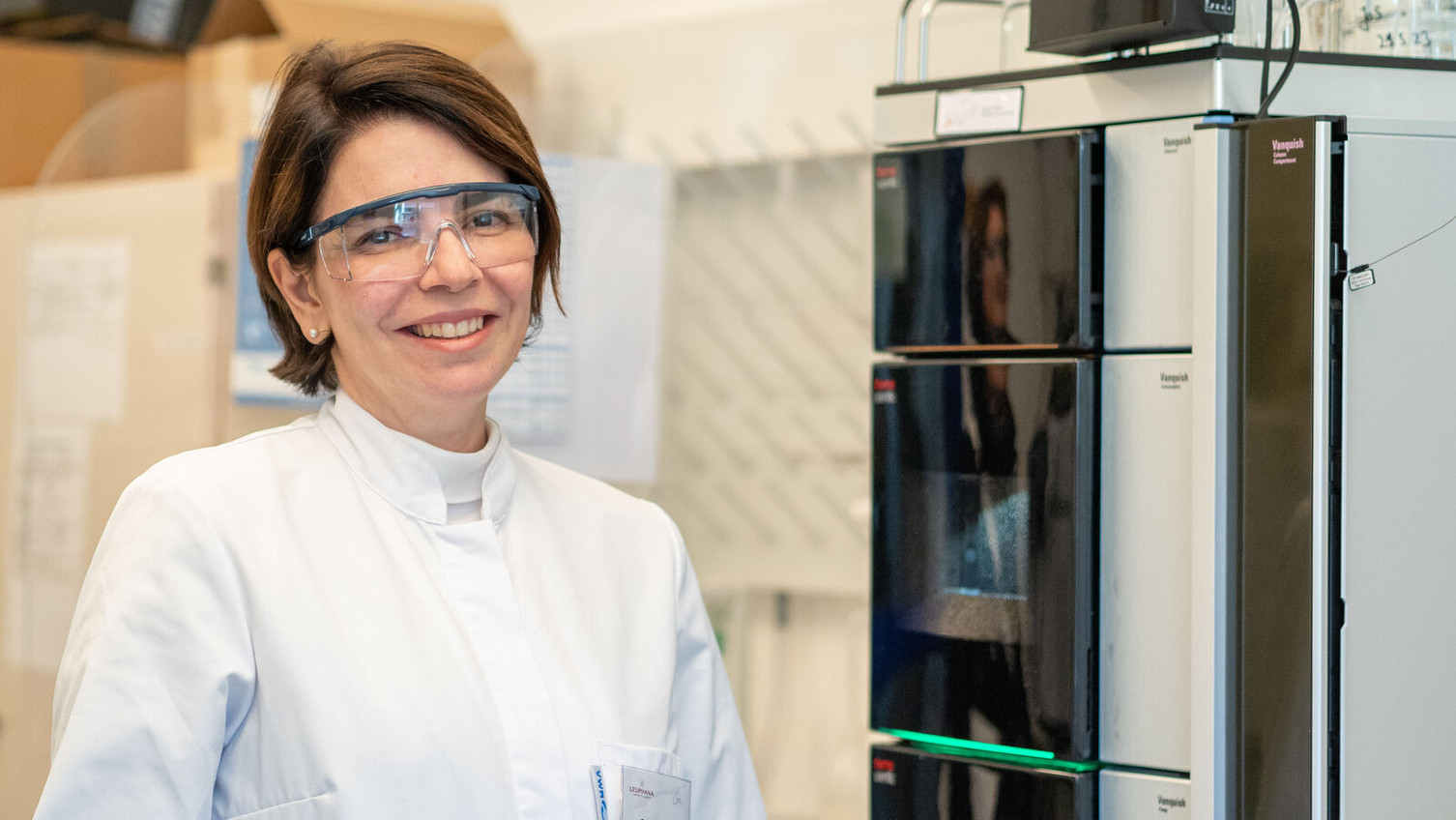New at Leuphana: Prof. Dr. Dr. Vânia G. Zuin Zeidler
Renewability, regenerability and circularity to produce greener and more sustainable biopesticides from fruit residues
2023-07-18 The chemist has been appointed Professor of Sustainable Chemistry of Renewable Organic Resources. She develops greener and more sustainable analytical methods for the determination of renewable, high-value substances e.g., derived from agro-industrial wastes, with a focus on sustainable separation science.
Industrially processed oranges are only half used. In the production of orange juice, for example, around 50 per cent waste remains, consisting of peel and fruit fibres. Or as Vânia Zuin Zeidler says: "Waste is just material in the wrong place at the wrong time. The chemist uses plant residues to obtain new raw materials. In Brazil, peels are often used as cattle feed: "But there is more material than the cattle can eat and it costs a lot of money to preserve it," the researcher explains. In addition, fruit residues contain valuable ingredients, which the chemist extracts using for instance microwave- and ultrasound-assisted extraction methods.
Plants use certain flavonoids to protect themselves against leaf feeding. Vânia Zuin Zeidler extracts the natural repellent from orange, apple or passion fruit residues. "We can use it to control insect infestation of crops without killing the feeding animals themselves," explains the chemist.
For her, understanding critically circularity is crucial. "Conventional food waste can be toxic. We need to use materials that do not contain artificial pesticides from the beginning to avoid problems in the future," says Vânia G. Zuin Zeidler. The chemist and her team use only non-toxic solvents as well as low-energy methods and small amounts of reactants: "We don't waste energy or time, so we can get products that all farmers can afford."
Vânia G. Zuin Zeidler works together with ecologists and other partners from different sectors to regenerate landscapes: "If you protect the soil, you can produce healthier food," says the chemist. Based on her studies, she supports agroforestry in Brazil, for example. Agroforestry combines agriculture with animal husbandry and forestry. The different species live and grow side by side and are meant to complement each other. "But we don't just supply materials, we also inform farmers about sustainable methods of cultivation" she explains.
In addition, her research focuses on developing and disseminating teaching materials and courses on green and sustainable chemistry for higher education. She has a PhD in natural and educational sciences and, for example, published a paper on university chemistry education together with Prof. Dr. Klaus Kümmerer, Professor of Sustainable Chemistry and Material Resources: "If chemistry is to contribute effectively to the development of a more sustainable world, it is essential that it is taught in a broader socio-economic and ecological context." In complementary studies, for example, she teaches on sustainable food in art and the media: "Social media often gives us a false image of food. There's nothing wrong with an honest plate of beans as a source of protein, instead of having a highly processed product that is not a food anymore, just a formulation that does not promote health and sustainability in a broader sense."
The researcher is also targeting meat substitutes such as hamburger patties. "Intensive processing to achieve the taste, texture and appearance of meat, such as the addition of artificial methyl cellulose, together with other ingredients, can increase the environmental footprint of vegetarian diets. Although meat production has a significant environmental impact, plant-based patties show that even less impactful meat substitutes can have environmental, social and health risks," explains Vânia G. Zuin Zeidler.
Since the beginning of her scientific career, she has also been involved in toxicology and risk assessments. With the study "Plasticized Childhood", researchers in Brazil are drawing attention to the health risks and environmental pollution caused by plastic toys from fast food children's menus or chocolate surprises: "In South America, the toys are often contaminated with solvents. In addition, they often contain materials that are difficult to separate and are thus almost impossible to recycle. This is a problem everywhere, because a large proportion of these toys end up in the rubbish after a very short time."
Vânia G. Zuin Zeidler thinks systemically and wants to reach society with the results of her research: "I don't work scientifically just to publish and achieve a high impact factor. I want to do something for all people."
Prof. Dr. Dr. Vânia G. Zuin Zeidler is a professor at the Institute of Sustainable Chemistry at Leuphana University, was a visiting professor at the Green Chemistry Centre of Excellence at the University of York (UK) and a professor at the Department of Chemistry at the Federal University of São Carlos (Brazil), where she coordinated the Green Chemistry, Sustainability and Education research group. She worked for almost ten years at the University of York with Professor James Clark, one of the fathers of Green Chemistry and founder of the renowned journal Green Chemistry (RSC). Vânia G. Zuin Zeidler is also the founding director of the Field & Food Tech Hub (UFSCar), a cross-sector platform that promotes healthy and ethical living through green and sustainable products and processes. She has a background in analytical green and sustainable chemistry and chemistry education. Vânia G. Zuin Zeidler has been associated with Institute for Sustainable Chemistry at Leuphana for many years, including as a research fellow of the Alexander von Humboldt Foundation.

